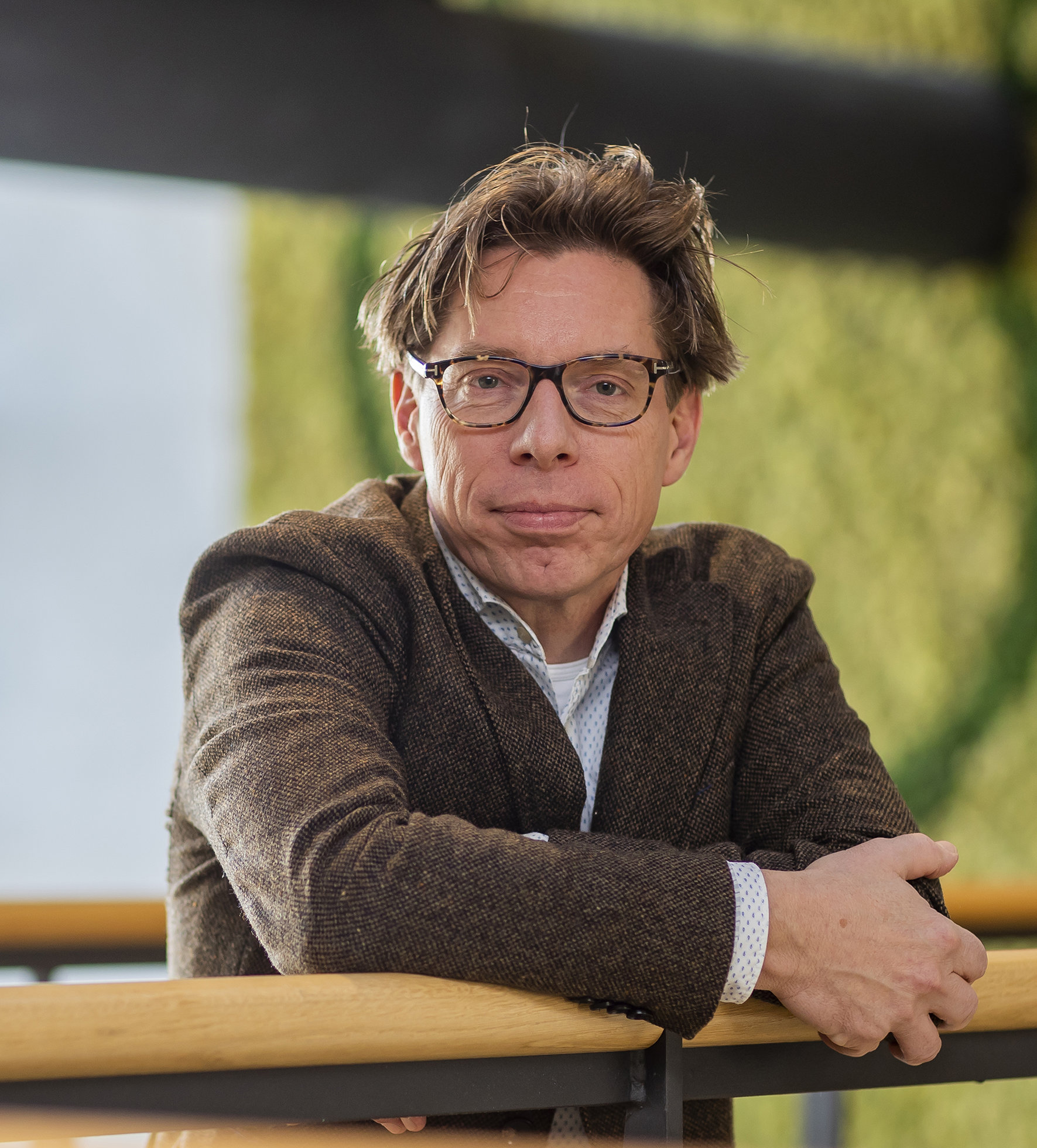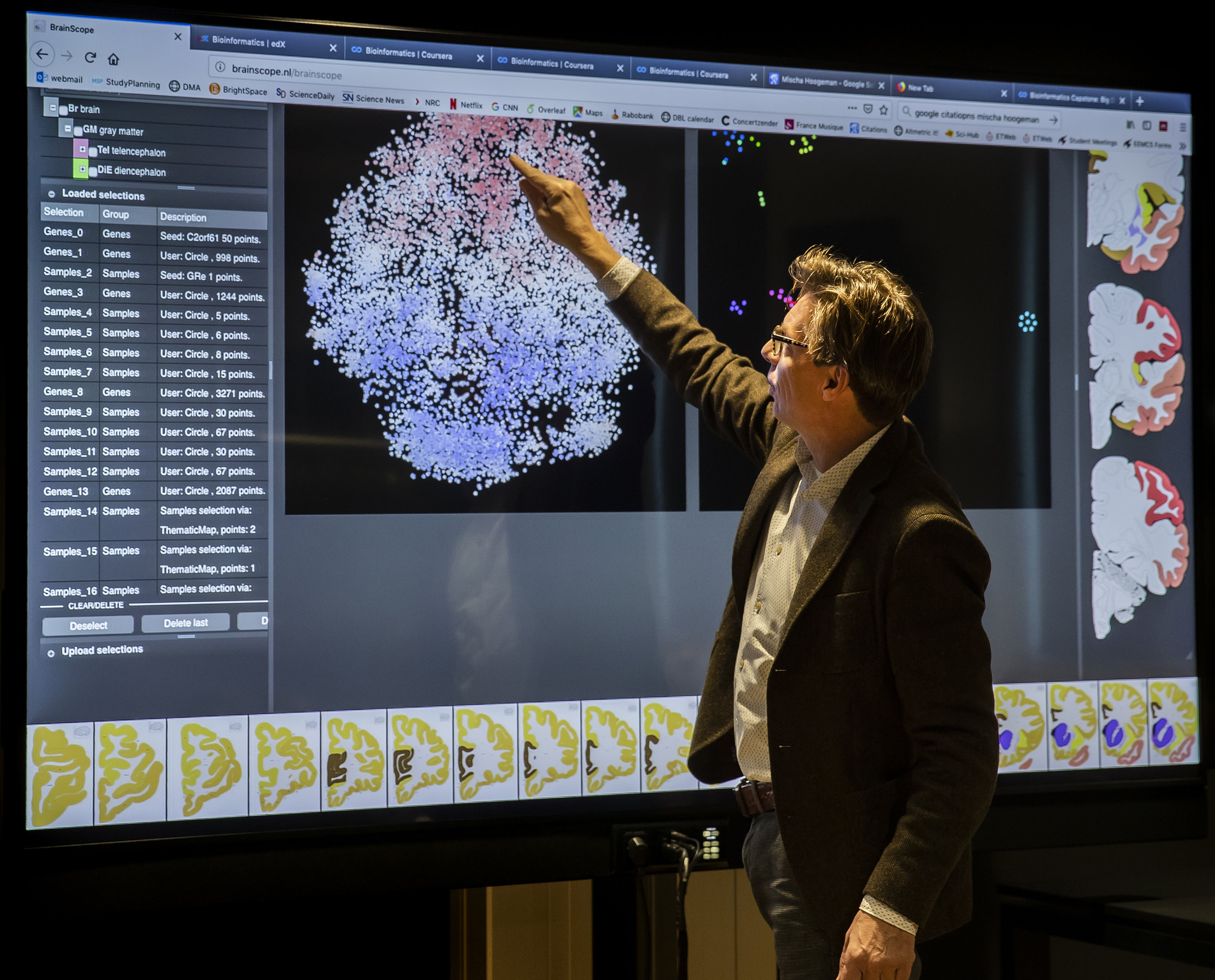Support Algorithms against Alzheimer's
As our average life expectancy goes up, so are the number of people getting Alzheimer’s Disease. Within 20 years, half a million people in the Netherlands alone are expected to suffer from this, as yet incurable, brain disease. At TU Delft, Prof. Marcel Reinders is carrying out research into the origins of the disease. “Innovations in technology are allowing us to measure a wider range of new aspects. That new data is giving us the opportunity to continue figuring out Alzheimer’s Disease.”
Alzheimer’s is caused by an accumulation of different proteins in the brain that causes the brain cells to die off. The accumulation of proteins starts in the area of the brain associated with processing observations, which explains why forgetfulness and disruptions in the short term memory are often the first symptoms. Age is the most important risk factor in getting Alzheimer’s. “It is the number one illness of the elderly,” explains Marcel Reinders. “The older a person gets, the higher the chance of getting it. Almost one third of people aged above 85 suffer some form of dementia, of which Alzheimer’s Disease is the most common.”

I hope that in five years’ time we will have made great progress in better understanding deviations in the molecular processes that ultimately lead to Alzheimer’s Disease. This is crucial knowledge in fighting this debilitating disease.
Marcel Reinders
Important knowledge
Marcel Reinders’ team is part of the Faculty of Electrical Engineering, Mathematics and Computer Science at TU Delft. The team uses large datasets to search for genetic factors that could cause Alzheimer’s. This is important knowledge for several reasons, as Reinders explains. “Understanding the mechanism that causes Alzheimer’s is crucial in developing medicines. To test medicines, it is important to be able to predict the likelihood of someone developing Alzheimer’s. And if you can estimate the likelihood of someone getting Alzheimer’s, you can track the person and start a possible treatment on time.”

The data for the research is collected in cooperation with the Alzheimer’s Centre of Amsterdam and the Clinical Genetics Department of Amsterdam UMC. International datasets are also used. “One of the things we did last year was that a doctoral candidate looked for repetitions in the DNA in the available data. If the number of repetitions in a specific place in the DNA differs in every person, this could be a potential lead. We also think that Alzheimer’s is related to a difference in the number of repetitions, but that is still hard to confirm.”
Thanks to donations from alumni
To further explore repetitions in the DNA, Reinders’ group started working with Amsterdam UMC on long read sequencing. To do this, the equipment needed was purchased with the support of donors to the Delft University Fund. “These sequencers read the DNA from blood samples and determine the DNA’s order. The equipment has now been set up and the first samples run. We are now gradually getting enough data to obtain new insights.”
The alumni’s donations have had a positive impact. “Thanks in part to the contribution of the Delft University Fund, we have received additional financing. This allowed us to appoint a doctoral candidate to examine the effect of methylation on Alzheimer’s Disease. This entailed looking at the molecules that stick to DNA and that have a regulatory effect.”
The group is doing further research into abnormalities in the DNA that emerge during life, so-called somatic symptom disorders. The research also looks at the role of proteins in the emergence of Alzheimer’s Disease. These efforts are generating leads for follow-up research. “Our work is step by step. You find an indication for an abnormality in the data and examine it further. Innovations in technology are allowing us to measure an ever wider range of new aspects. That new data is giving us the opportunity to continue figuring out Alzheimer’s Disease.”
Worldwide research
Research is being done on Alzheimer’s Disease in several places in the world and the data that it is generating is shared widely. “TU Delft and Amsterdam UMC are leading the way in this kind of research, so it is imperative for all the research into Alzheimer’s Disease that we have the means to do it. It is also good for patients that research is being done in the Netherlands. They thus have earlier access to medical tests that are run and to potential new treatments. But in the end, the knowledge will go around the world.”
The future
In the future, Reinders hopes to combine all the different research. “We now have too many separate pieces: DNA, methylation, proteins. They could, however, be combined. But investigating this multiomic technology is still new. We want to further work on it and use it to better understand Alzheimer’s Disease. To do this, apart from equipment and good datasets, we primarily need clever people to develop new methodologies.”
“I hope that in five years’ time we will have made good progress in better understanding deviations in the molecular processes that ultimately lead to Alzheimer’s Disease. And that we can effectively separate the processes connected to aging and assess which of these affect Alzheimer’s Disease. This is crucial knowledge in fighting this debilitating disease.”
“The extra contributions from alumni will help us facilitate the researchers in our group. We can give them the opportunity to acquire international knowledge or share our findings with colleagues around the world. This will improve our work and may help us speed up other research.”
Great satisfaction
The work of Marcel Reinders is slowly expanding from Alzheimer’s Disease to other neuro degenerative diseases such as Parkinson’s. This complements his personal motivation. “I studied Physics so that I could understand how the world fits together and to explore how nature works. You peel off one layer at a time, and with each layer you unravel something new. That I can also use that knowledge to help people in the long term is a huge plus for me and gives me great satisfaction.”
